Tobacco, Drugs, & Alcohol Among Prosser Youth The Impact of Substance Abuse on Our Community
In the recent Healthy Youth Survey, middle and high school students were asked to report their use of tobacco, drugs, and alcohol in the last 30 days. These were the results among 10th grade students:
6% Have Smoked
Cigarettes
20% Have Consumed
Alcohol
17% Have Used
Marijuana
12% Have Abused Prescription Drugs
Substance Abuse, Mental Illness, and Your Child Answers to Parents' Most Common Questions
Mental health disorders and substance abuse often go hand in hand. Why?
Kids and adolescents may begin using tobacco, drugs, and alcohol to self-medicate an undiagnosed mental health disorder. A predisposition for mental health disorders could likewise indicate a predisposition for substance abuse disorders.
And yet, we know that substance abuse in young people can have a profound impact on the brain during this crucial time of development. Research has shown that repeated use of tobacco, marijuana, alcohol, and other drugs can permanently affect the structure and chemistry of the brain and thereby increase risk of mental health issues.
Talking to your children about alcohol and drug use can be difficult and awkward but it’s an on-going conversation that must happen. YOU are the biggest influencer in your child’s life! Setting clear expectations and standards with your children regarding drug and alcohol use is important. You can find additional resources on this site under Resources.
Here's what the Partnership for Drug-Free Kids says about what you can do if you notice problem behaviors in your child:
If you’ve noticed any of the described changes or behaviors in your child, don’t be afraid to err on the side of caution. Prepare to take action and have a conversation during which you can ask direct questions like “Have you been drinking or using drugs?” While no parent wants to hear “yes,” being prepared for how you would respond can be the starting point for a more positive outcome.
Of course, not every child is inclined to confess and a “no” could also mean they’re in need of help for other reasons, including a mental health issue. In either case, experts strongly recommend that you consider getting a professional assessment with your child’s primary care doctor or a clinical psychologist to find out what’s going on.
Source: Partnership for Drug-Free Kids
If you notice any of the following behaviors in your child, consider....DOING THIS
Has your child...
- Had a recent dramatic change in mood?
- Changed their eating and/or sleeping habits?
- Seemed to loose interest in their favorite activities?
- Recently fallen out with their usual friend group?
- Stopped putting in effort into things like school and personal hygiene?
The human brain doesn't stop growing and developing until a person is in his or her early to mid-twenties. During adolescence, the area of the brain that controls behavior and decision-making is developing. During this time, the brain is more susceptible to factors like stress, peer pressure, and bullying. For this reason, it's important to check in regularly with your kids to talk about issues they may be dealing with at school or with friends—and seek appropriate help if necessary.
Upcoming Events Find Out What We've Got Planned, and Get Involved!
Sorry, we couldn't find any posts. Please try a different search.
Talk. They Hear You. Let's Have Productive Conversations with Our Kids About Drugs, Alcohol, and Mental Illness
Struggling to have the important conversations with your kids? The perfect opportunity may be while you're spending time together doing normal activities. Here are a few ideas:
Having Dinner as a Family
Family dinners are a great opportunity to check in with your kids, find out what's going on in their lives, and discuss their questions about drugs and alcohol.
Doing Chores Together
Sometimes, the tough topics are easier to tackle when your hands are busy with a task. Your child may not be looking directly at you, but they're listening.
Before a Party or Hangout
An alarming number of kids have access to alcohol, tobacco, marijuana, and prescription drugs through friends and neighbors. Before you send them off to a party, sleepover, or other get-together, make sure they know where you stand. Remember, you are your child's number one influence.
Preparing a Meal Together
Teenagers are prone to feelings of depression and anxiety. The next time you're cooking dinner together, ask your child how they're doing, and let them know you are there to talk if they need it.
Set Your Family Up for Success Get Information, Tools, and Answers to Your Questions
There is a lot of information and statistics out there when it comes to substance abuse and mental illness in young people. But all the statistics in the world don't matter when your own child is struggling. We're here to help.
Marijuana
Let's talk about marijuana legalization, and how it changes the conversation we have with our kids.
Tobacco
Let's uncover the risks associated with smoking, chewing, and vaping tobacco products.
Alcohol
Let's understand the motivations for underage drinking and find ways we can make alcohol harder to access.
Drugs
Let's discuss prescription drugs, amphetamines, and how new drugs are posing an even greater risk to our kids.
Suicide
Let's learn the facts about adolescent mental health and talk about ways to prevent self-harm.

